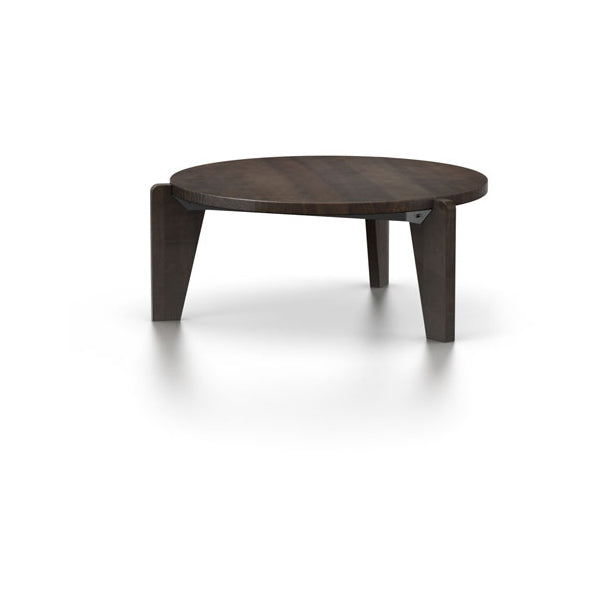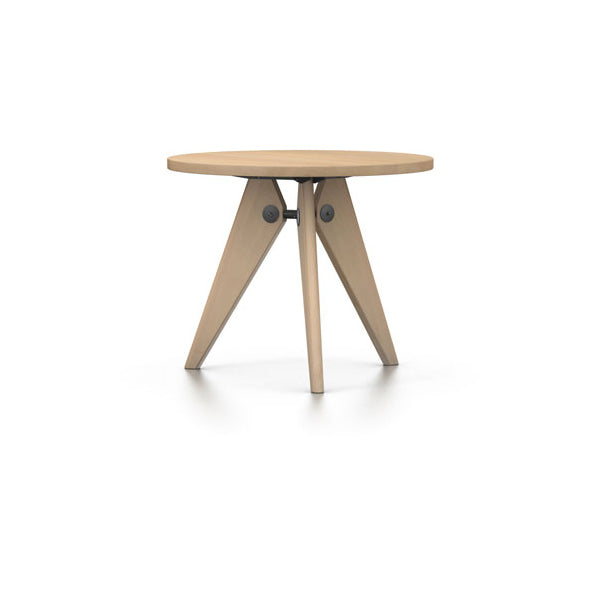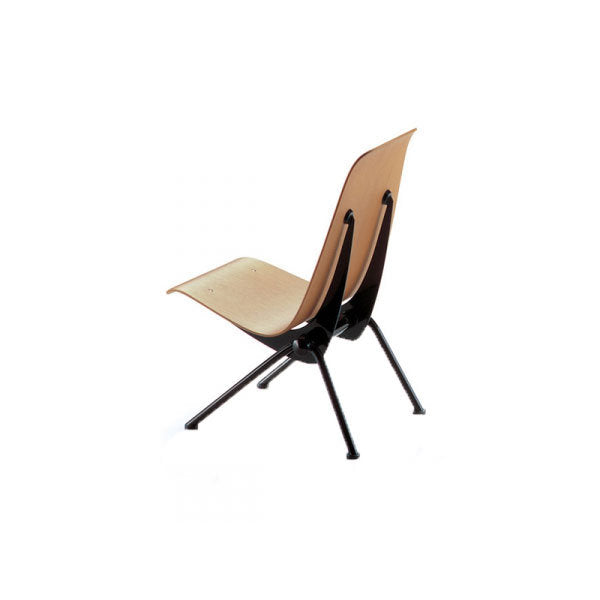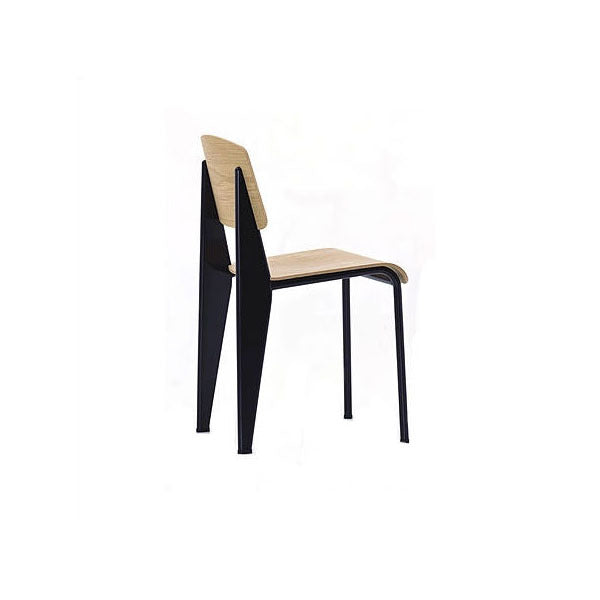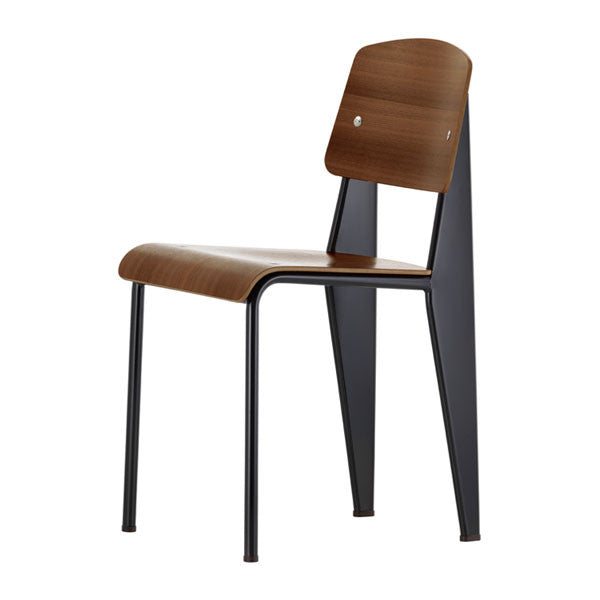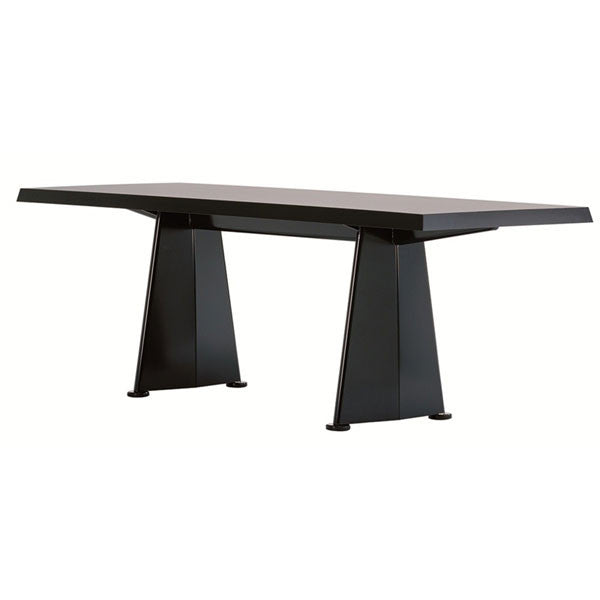Jean Prouvé
Jean Prouvé, born 1901 in Paris, was trained as a metal artisan under Emile Robert, Enghien und Szabo in Paris.
In 1924 he opened his own workshop in Nancy and began to produce his first furnishings made of formed sheet steel in 1925.
He was a founding member of the Union des Artistes Modernes (UAM) in 1930. In the following year he established his own manufacturing firm, Les Ateliers Jean Prouvé. During the 1930s, the company produced numerous furniture designs, as well as some of the first prefabricated architectural elements, including components for the Maison du Peuple in Clichy (in collaboration with the architects Beaudoin and Lods), whose steel-and-glass structure attracted a great deal of attention.
Due to the scarcity of steel during the Second World War, Prouvé constructed wood furniture and developed simple houses made out of prefabricated parts. Active in the French Résistance, Prouvé was elected mayor of Nancy after the city was liberated. He designed and constructed residential buildings for the homeless.
In 1947 he established the Maxéville factory, a facility of 25,000 square meters in which furnishings, prefabricated homes and schools were produced by 200 employees. In order to meet the increasing demand for furniture, this division came under the direction of Steph Simon as a separate division with exclusive marketing rights in 1949.
Due to disagreements with the majority shareholders, Jean Prouvé left the company in 1953. He designed and built his own residence in 1954. After working as head of the construction office of the Compagnie Industrielle de Matériel de Transport (CIMT) in Paris between 1957-68, Prouvé ran his own architectural consulting firm in Paris from 1968-84.
He taught as professor at the Conservatoire des Arts et Métiers (CNAM) from 1957-70. As chairman of the jury for the Centre Pompidou architectural competition in 1971, he played a major role in selecting the design of Renzo Piano and Richard Rogers.
Between 1980-84, Prouvé again turned his attention to the further development of his furniture designs. He died in Nancy in 1984. In many of his works, Jean Prouvé achieved the goal of uniting functional requirements, the honest use of materials and economical concerns with the complex demands of mass production. Beginning in 2002, in close collaboration with the Prouvé family, Vitra has devoted itself to the re-edition of numerous designs by this great constructeur.
For the Prouvé RAW Special Edition, please contact the store at 949.494.7547

